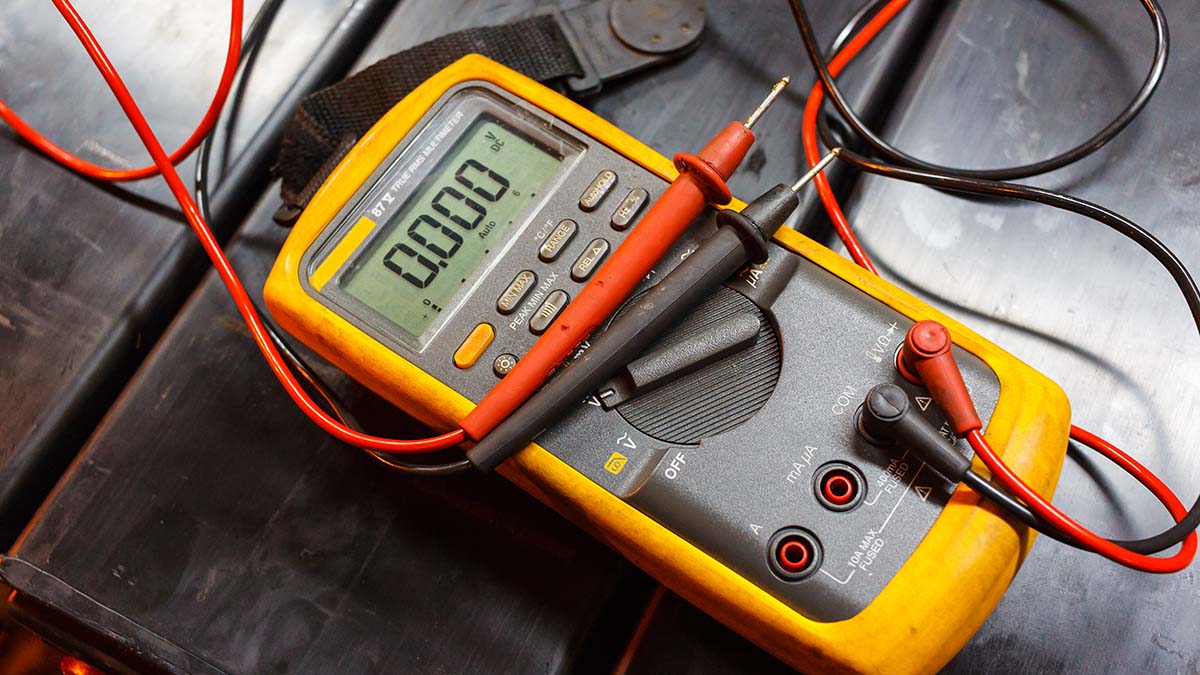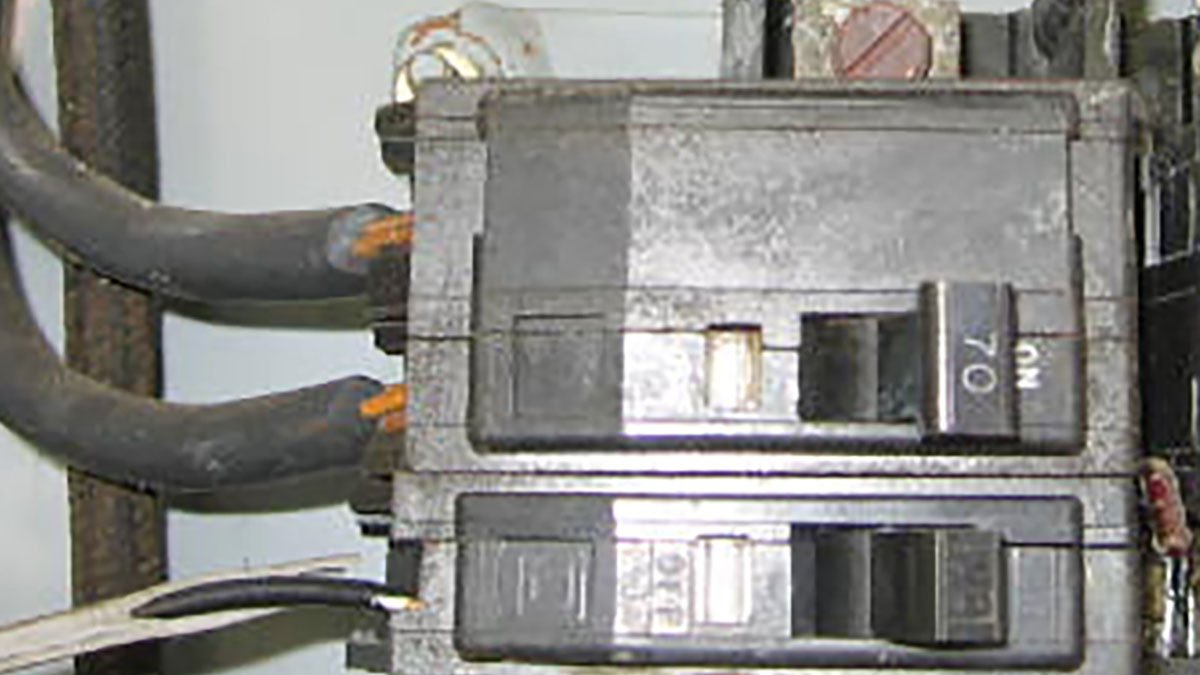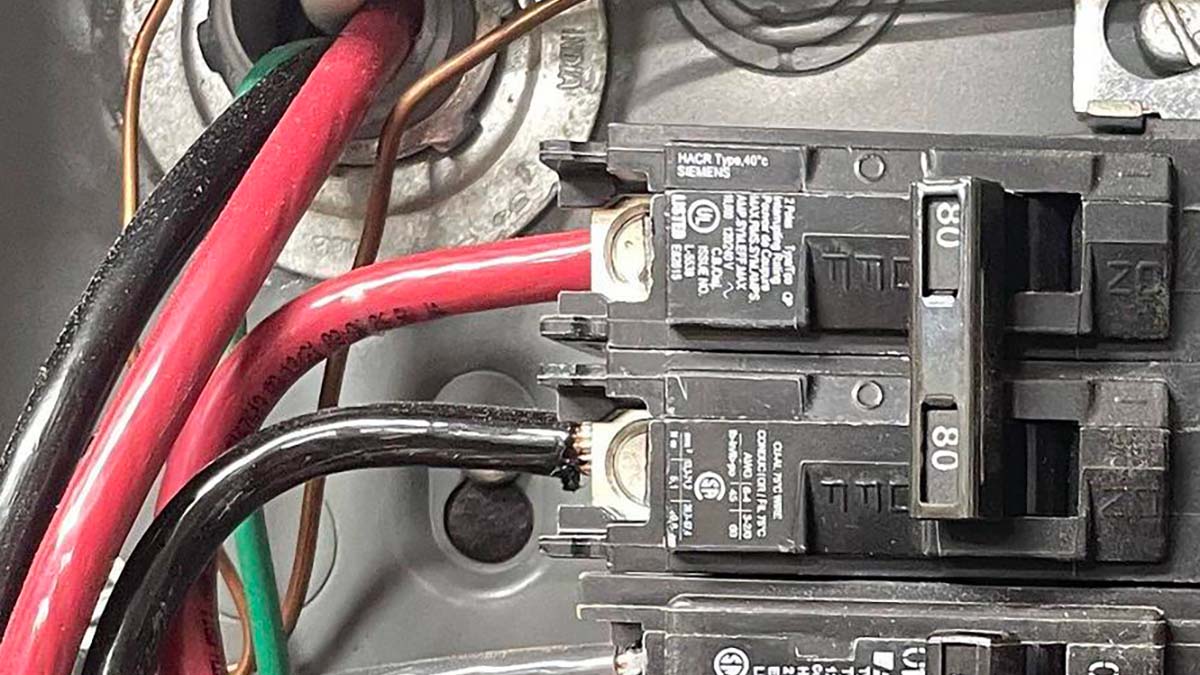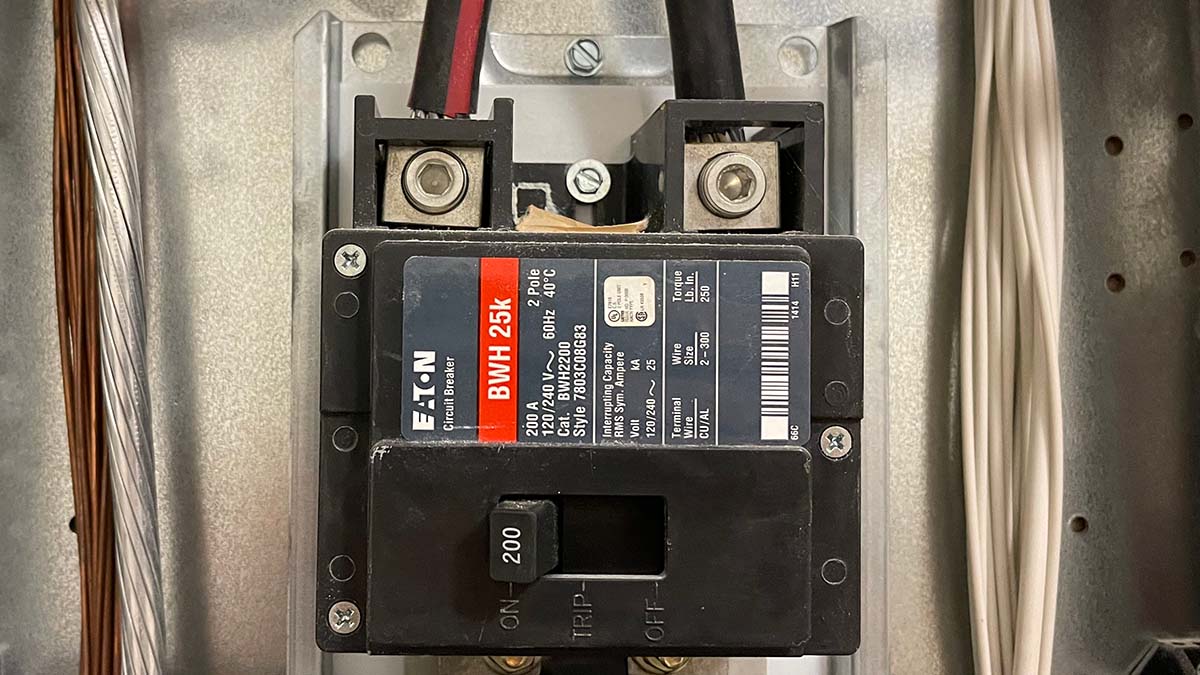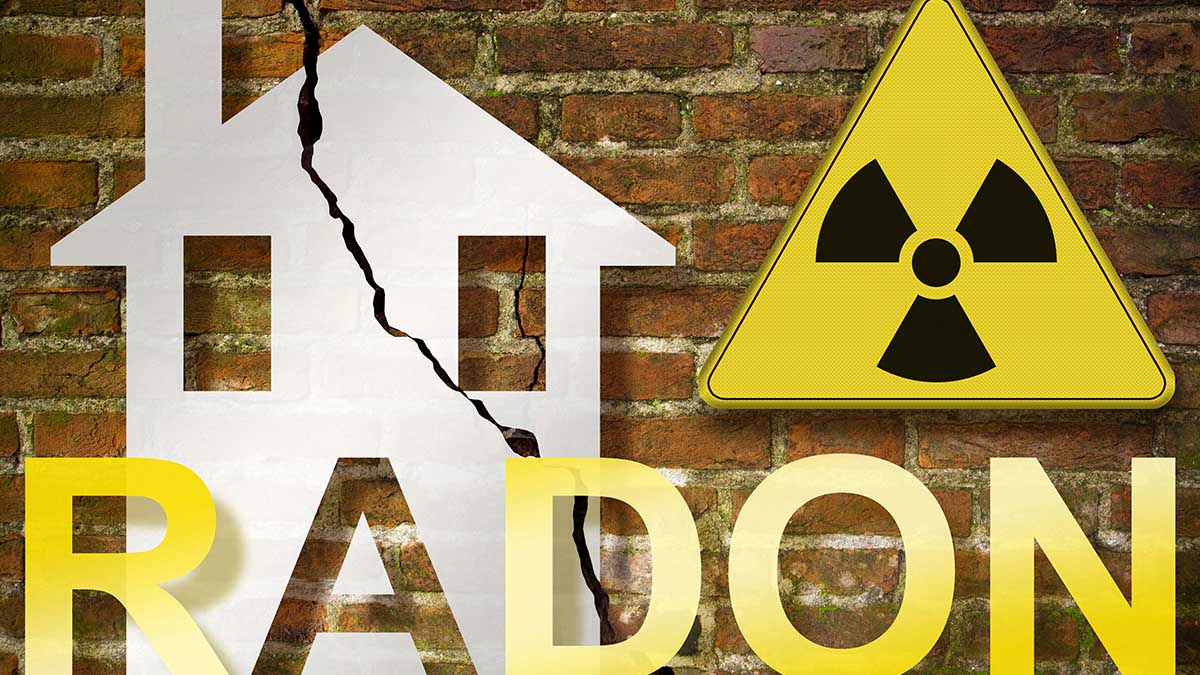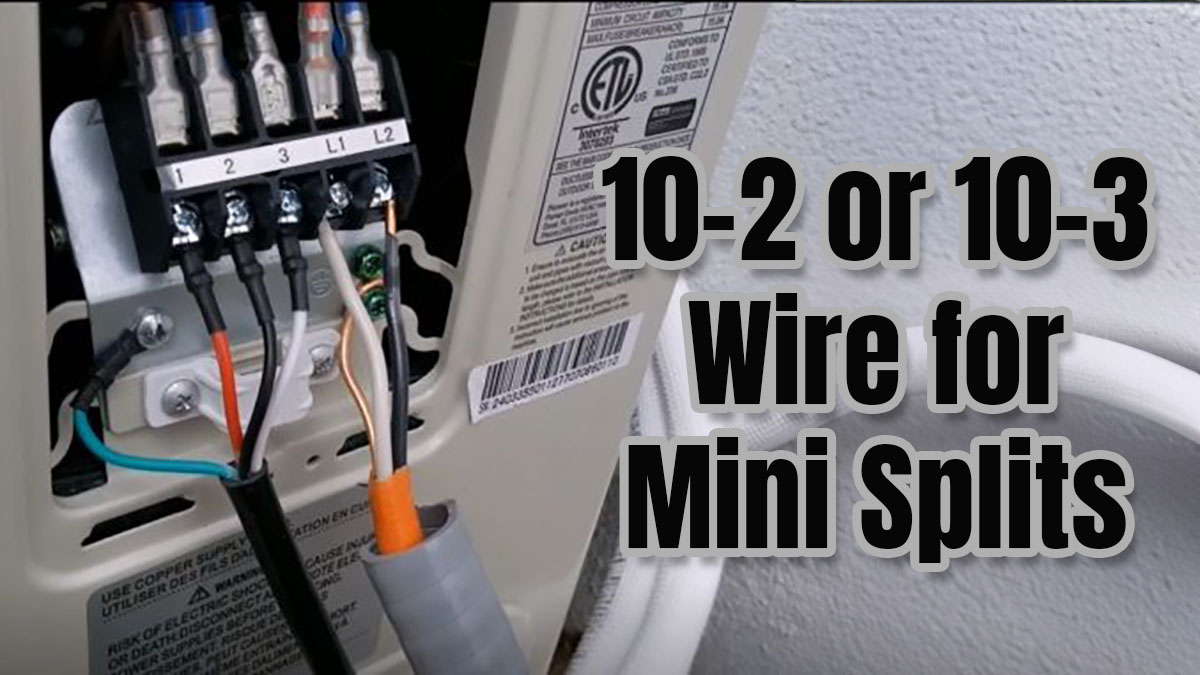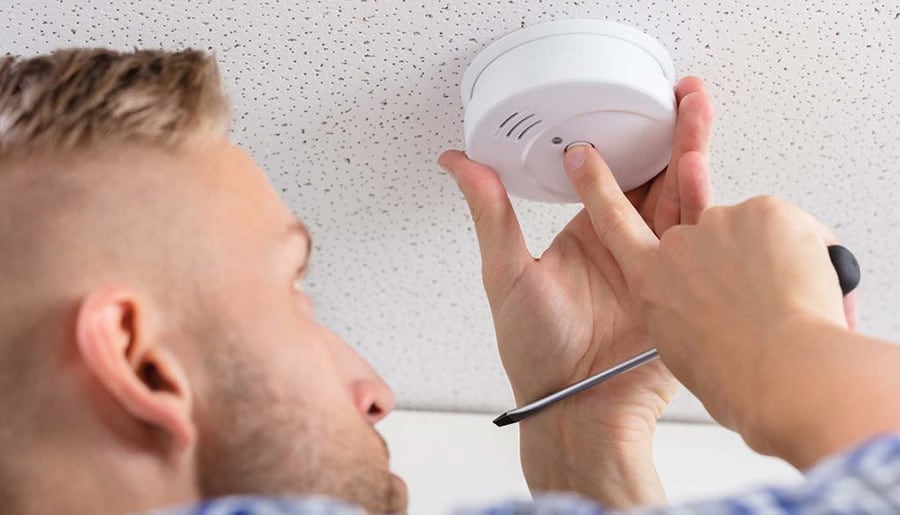
Smoke alarms are essential for keeping our families safe, but few of us ever really think about them when they are not needed. If you believe it is time to replace yours, you may be wondering who to call.
It is best to have a certified electrician install smoke detectors in your home. Having a professional do the installation will ensure everything is correct and up to code. You can usually replace battery-powered smoke detectors on your own, but you should call a professional to replace hardwired ones.
There are many smoke detectors on the market today, and it can be intimidating to replace them on your own. Below we will cover everything you need to know to get the job done right.
Do Electricians Install Smoke Alarms?
When building a house, the electricians install the wiring and mounting boxes for smoke alarms to ensure that the house is up to code. Later, when you want to replace or repair them, it is best to call an electrician again to do the work.
But before you make that call, it’s best to know what type of detectors you have and how they are powered. This will further help determine if you should do the work yourself or call in the pros.
Do You Need an Electrician to Install a Smoke Detector?
There are several reasons why it would be worth it to call an electrician instead of replacing or installing smoke alarms yourself:
- When installing new models that don’t fit on existing mounting plates
- When rewiring existing or new smoke detectors
- When working with interconnected smoke alarm systems
- If you are unsure about how many detectors you need or where to place them
- If you are unsure of local building codes and requirements
A certified electrician can help in all the above cases, ensure that the work is done correctly, and code.
Furthermore, if you are a landlord or plan to rent out your home, you should hire an electrician as it will remove some of the liability that comes with doing the work on your own.
What Type of Smoke Detectors Do Electrician Need to Install?
Whether or not you need an electrician to install or replace smoke alarms depends on the detector type and your comfort level working with them.
Hardwired Smoke Detectors
Basically, all hardwired and interconnected smoke detectors should be installed by an electrician unless you are familiar with the process.
These systems are more complex and require an understanding of how they operate as a network. Also, working with electrical wires always presents some risks, especially if you don’t have proper training.
Battery-Powered Smoke Detectors
If you are installing new battery-operated smoke or carbon monoxide alarms, then it is quite straightforward. There is no need to hook it up to a power source, and you do not need any electrical knowledge to do so.
But, in most other cases, if you are unsure, it may be best to call a local electrician.
Is It Expensive to Hire an Electrician to Install Smoke Detectors?
In most cases, it is not very costly to consult an electrician or have one come to your home and do the work. Quotes online for hardwired installations are about $150-$200.
You might also find that handypersons are cheaper if you replace smoke detectors and are uncomfortable working with wiring or climbing ladders. Either way, it is not a lot of money for the peace of mind knowing that your family is protected.
How Do You Test Your Smoke Detectors?
According to the US Fire Administration, you should test your smoke detectors every month.
This recommendation is for all smoke detectors, regardless of the power source (9v battery, lithium Ion battery, or hardwired.)
To test the alarm, push the small button on the unit’s face to activate the alarm. If no alarm is activated, the battery or the entire alarm unit needs replacing.
The USFA also recommends replacing all standard 9v batteries in smoke detectors after one year, whether testing indicates a need or not. Lithium-ion batteries can last much longer, with some units rated for ten years. Be sure to check which type you have, and replace as necessary.
With standard 9 volt batteries, it is a good idea to get into the habit of setting aside a time each year, such as during spring cleaning, to go around and replace all the batteries at once.
When Do You Need to Replace Smoke Detectors?
The USFA also recommends that you replace all of your smoke detectors ten years after the manufacture date. It is often convenient to also check the life of your devices when changing batteries.
Once you have removed the detector from the mounting unit, turn it over and check to see the manufacture date. If it is ten years or more, then it is time for a replacement.
If you can find the same model of smoke detector that you are replacing, you should be able to snap it into the existing ceiling or wall mount. If that is not possible, then rewiring a new mount may be necessary.
In the case of interconnected systems, you will need to ensure that all units are from the same manufacturer. If you use different brands on the same network, they may fail to work correctly.
If you are uncomfortable wiring up the detector or have never worked with an interconnected system, then it may be time to call in an electrician.
Who is Responsible for Smoke Detector Installation?
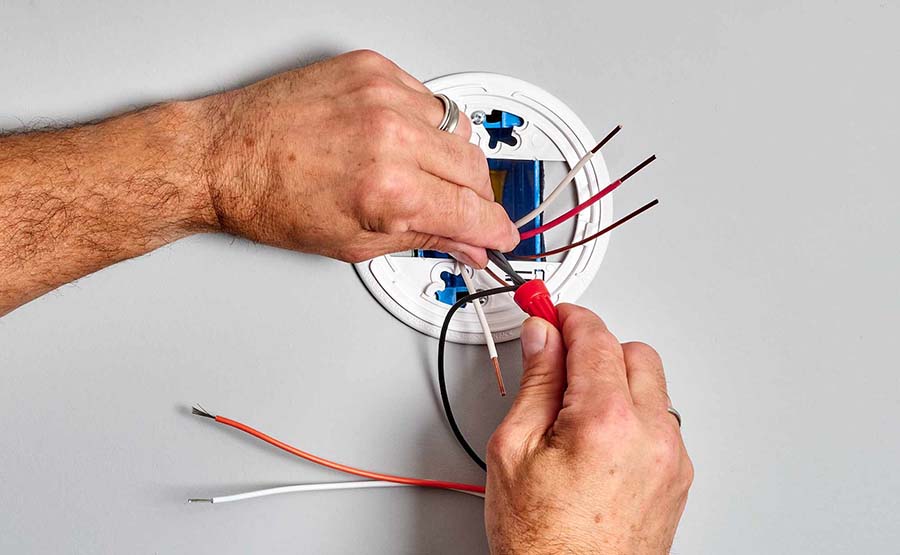
Because smoke detectors are safety devices, many laws regulate them. This regulation means that, in the event of a fire, someone gets held responsible if they fail to function correctly.
In most cases, this responsibility lies with the homeowner or the landlord. This liability includes any instance where the failure comes from:
- Improper installation/placement
- Improper maintenance
- Missing or broken batteries
- Dead batteries
- Tampered with or disconnected alarms
This means that if the property owner fails to ensure that the smoke detectors are installed to code and working correctly, they can be held liable in court.
So, if you suspect or find that the smoke alarms in your rental property are not working correctly, then you should alert your landlord or rental company. In other cases, the manufacturer may be liable if the detectors have faulty sensors or are defective in some way.
Regardless of who is legally responsible, it is your family’s safety at stake at the end of the day. So it is best to be vigilant in testing and maintaining smoke detectors to avoid any issues.
Depending on the situation, smoke detectors can reduce the fatality rate in fires anywhere from 18-29%. They are a relatively cheap way to protect your family and ensure everybody can get out in time.
Proper installation, testing, and maintenance is the key to their effectiveness. We hope this article has shed some light on all these areas of their use so that you can effectively apply these techniques in your home.
What are the Different Types of Smoke Detectors?
Not all smoke detectors are created equal. You need to be aware of several types, as they all work in different ways.
Smoke Detectors Power Options
The first thing to be aware of is how the alarms are powered. There are two main types, hardwired and battery operated.
Hardwired
Hardwired units draw power from your home’s electrical supply, usually on their own circuit breakers. They draw their power from the grid during normal usage and have batteries if your power goes out.
Hardwired smoke detectors are generally better for several reasons. The first is that the batteries rarely run out and do not normally need to be replaced.
The second advantage to hired wired systems is that they communicate with one another. Being in a network means that if one detects smoke in the basement, it will relay the alarm to others, including the one in your bedroom.
In theory, this provides more time to escape from or to put out a fire.
Battery-Powered
The second style is powered solely by batteries, which you need to test and replace regularly. Standard battery-powered detectors are not connected to a network and will only sound the alarm when exposed directly to smoke or flame.
Battery-powered detectors are generally less preferable than hardwired ones for the above reasons. Still, they benefit from simple installation, as they can be placed anywhere without much effort.
However, many newer models do use radio frequency or other means to communicate with one another. This allows you to still get an interconnected network of alarms even without hard wiring, as long as they are all the same manufacturer.
Smoke Detectors Sensor Types
Like the power source, the type of sensor used in the smoke alarm can affect its safety. There are two main types, and each functions slightly differently.
Both the Ionization and the photoelectric styles can detect smoke. However, each one performs better with different fire types:
- Ionization sensors respond faster to flaming fires (i.e., cooking, gas, etc.)
- Photoelectric sensors respond faster to smoldering fires (i.e., cigarette fires, electrical fires, etc.)
Ionization
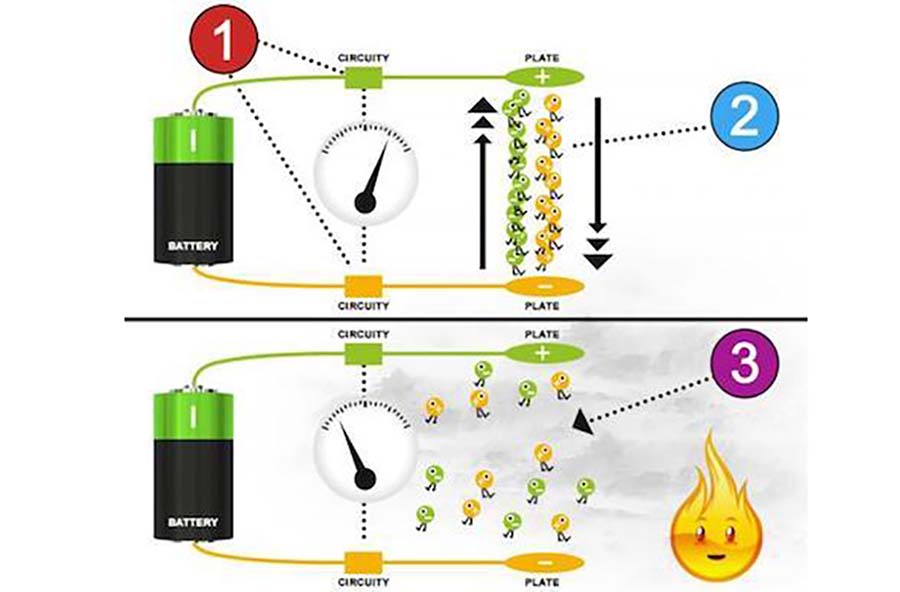
The first type of detector uses an ionization sensor. This sensor contains a tiny amount of the radioactive element Americium-241.
As the radioactive element decays, it causes air particles to have either a positive or negative charge. These charged particles then move towards either the positive or the negatively charged plates on either side of the device.
When smoke enters the sensor, it binds to the ionized particles and prevents them from reaching the plates. When the plates no longer detect the flow of ions, the alarm sounds.
Photoelectric
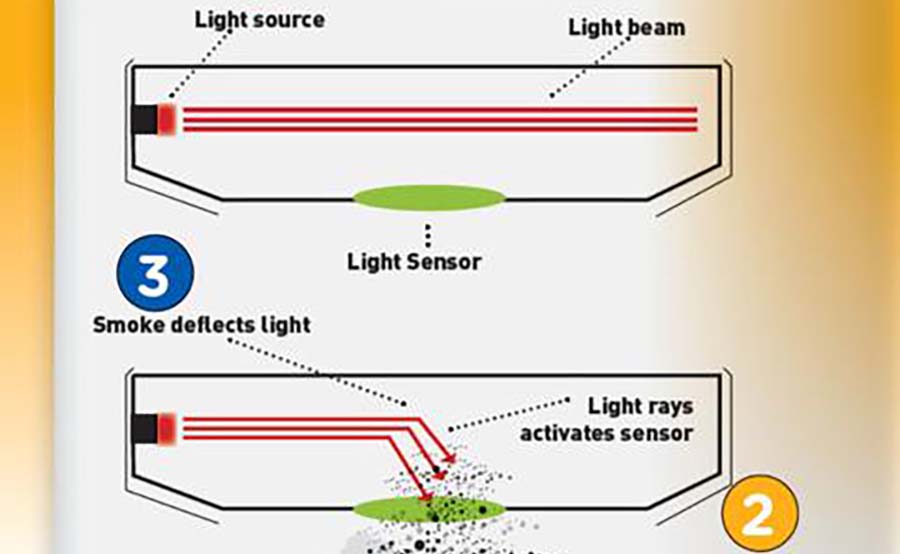
The second type is called photoelectric and works using a light source.
The unit contains a small LED light that shines straight ahead like a laser and a light sensor off to the side. When the air is clear of smoke, the light shines straight through, and the detector cannot see it.
When smoke enters the device, it scatters the light and sets off the light sensor and alarm.
Which Smoke Sensor Type is Safest for Your Home?
It is easy for consumers to be confused about which of the two sensor types is better. There has been a lot of debate and controversy surrounding this issue for many years.
According to the US Fire Administration, it is best to include both sensors in your home or use detectors that combine both sensor types.
These recommendations come after years of extensive testing and data analysis. Both sensors can detect both types of fires but can often detect one kind of fire faster.
For this reason, they recommend a ‘don’t put all your eggs in one basket approach. This means it is best to either have a mixed system or use the detectors with combined sensors.
Regardless of which detectors you have installed in your home, they will need to be tested regularly and eventually replaced.
How Many Smoke Detectors Should Your Home Have?
The number of smoke detectors required for your home will depend on its size and number of rooms.
The National Fire Protection Association recommends using interconnected systems to alert you no matter where in the house the fire is. They suggest (and most places require) one smoke alarm in each room where somebody sleeps.
Because it can take time for the smoke to seep through a closed door, they also recommend having one outside of rooms where people sleep, such as in the hallways or stairwell.
Ensure that there is at least one smoke detector on each level of the home, including the attic and basement.
Other recommendations from the NFPA include:
- Detectors in basements should be mounted to the ceiling, close to the stairwell.
- Smoke detectors should be placed at least 10 feet away from any cooking appliances to reduce false alarms.
- Because smoke rises, it is best to mount detectors on the ceilings. If a wall mount is required, install it 12 inches from the ceiling.
- Avoid installing in areas where wind or drafts may interfere with them, such as near windows, doors, or heating vents.
- Never cover over a smoke alarm with paint, stickers, wallpaper, or anything else.
Do Electritians Install Carbon Monoxide Detectors?
Carbon monoxide detectors use different sensor mechanisms that do smoke alarms. However, they are powered in the same ways: hardwired or by battery.
Like smoke detectors, if they are hardwired or interconnected, it is best to call an electrician, and if they are battery powered, you can most likely do it yourself.
Final Thoughts
If you need to install a smoke detector, it’s best to hire the pros. Certified electricians are trained and certified for installing these devices so they can perform all of the necessary safety tests before turning them on. They also know how to troubleshoot any problems that may arise with your wiring or electrical system down the road after installation is complete.


